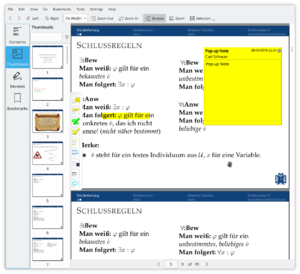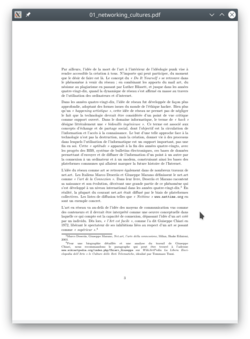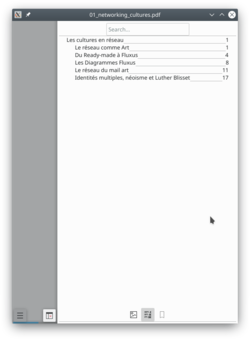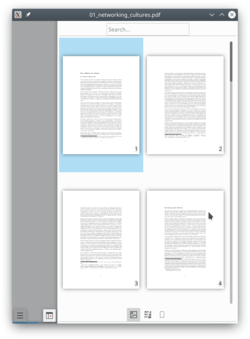Okular
Что такое Okular?
Okular is a universal document viewer developed by KDE. Okular works on multiple platforms, including but not limited to Linux, Windows, Mac OS X, *BSD, etc.
Вы можете следить за развитием проекта на его домашней странице.
Создание
Эта разработка начата как часть программы Google's Summer of Code. Описание проекта можно найти в Уголке Разработчика KDE.
Okular combines the excellent functionalities of KPDF with the versatility of supporting different kinds of documents, like PDF, Postscript, DjVu, CHM, and others.
Страница обработчиков формата документа содержит схему, описывающую более подробно форматы, и функций, поддерживаемые в каждом из них.

Наряду с поддержкой многих форматов, Okular предлагает такие функции, как выделение текста, аннотации, извлечение файлов, встроенных в документы, и много других сюрпризов. Скриншоты Okular в действии можно увидеть здесь.
Вы можете поговорить с разработчиками и другими пользователями в IRC, irc.freenode.org, канал #okular.
If you are interested in contributing to Okular, please contact the team. Programmers and non-coders are welcome all the same.
Mobile Version
Okular has a mobile version since version 0.16 release in February 2013 [1]. The first version was based on the active framework. The mobile viewer was then ported to Kirigami in 2016 by Marco Martin[2] and finally to Kirigami2 in 2017[3].
The mobile version doesn't support all features form desktop version, but provide better touch support and a mobile interface.
You can test the mobile version in your PC by entering
okularkirigami
in your terminal.
Советы и рекоммендации
Reviewing Documents / Annotations
Двойной клик на любом из инструментов Рецензирование (F6) позволяет сделать несколько аннотаций без активации инструмента после первого раза.
How to keep the annotations you made to the PDF file:
By default, Okular saves annotations in the local data directory for each user. Since KDE 4.9, it's optionally possible to store them directly in a PDF file by choosing , so they can be seen in other PDF viewers. Note that this feature requires Poppler 0.20 or newer for regular PDF documents. If the PDF document you are annotating is encrypted, this feature requires Poppler 0.22 or newer.
DRM
By default, Okular follow the PDF specification and don't allow copying text from DRM protected files. However, there is an option in the settings to disable DRM limitations in
There was a small controversy in the Debian bug tracker a long time ago, about the default choice to Obey DRM limitations[4][5]. This was then justified by a Okular/KPdf developer[6].
PDF Signature and certificate
Okular can verify if a PDF certificate is valid. But you can not yet create new signature. See release note for more information.
More Information
- Official KDE documentation
- Okular website
- Okular API documentation
- Okular phabricator project
- Okular git repository



